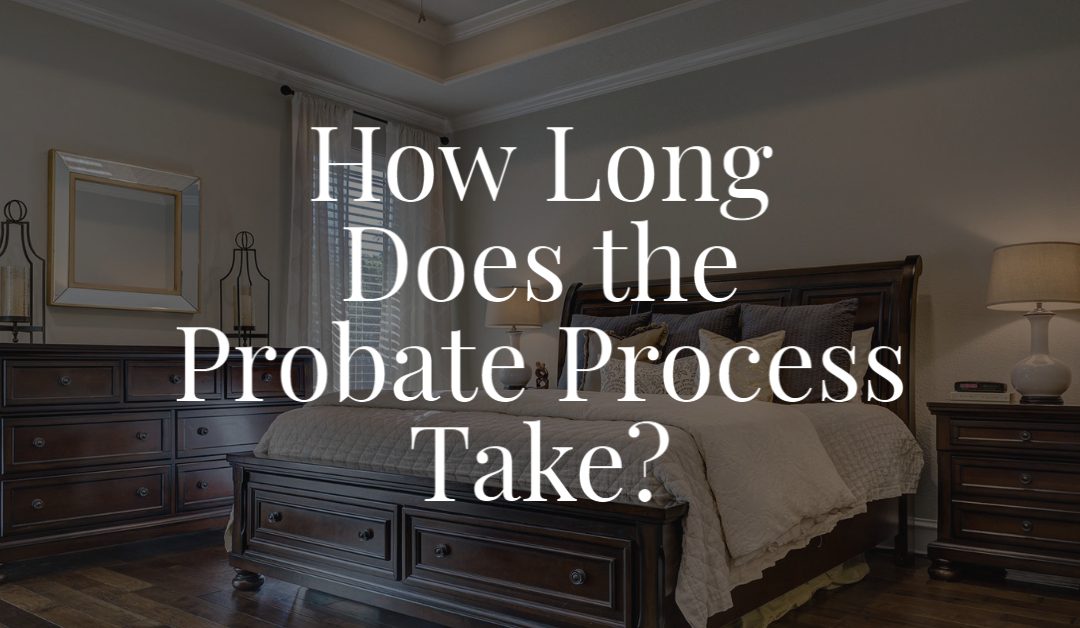After a loved one dies, usually a probate court must settle the estate. While most people want the settlement process done ASAP, probate can take between 18 and 24 months. Sometimes probate can last three years or more. Time delays can create unnecessary stress for you and your family. Let’s take a look at why probate takes so long and how to speed the process along.
Probating the Will
Probating a will is the process of proving the will is valid. The judge has to look it over and assess whether it is a true and qualifying testament of what the deceased wanted. The judge may talk with sources or check with witnesses or an attorney who created the will.
If there is more than one will, then probating can become even more complicated as the judge must contact more sources to document the authenticity of the valid will.
Without a will, the court must settle an estate through North Carolina intestate laws. These specific laws determine who will inherit the different parts of the estate when there is no will. An estate without a will is like a boat with no rudder. The family and loved ones of the deceased are more likely to have disputes and disagreements that lead to more courtroom time for all.
Court Documentation
Managing probate required paperwork can be a monumental undertaking with structured timelines and court-imposed deadlines. If the deceased did not choose an executor, the court must appoint an estate administrator, also called a personal representative.
The administrator must make an inventory of the estate and present this to the court. Before probate can close, they must show documentation that the estate has paid creditors and taxes, given out inheritances to the beneficiaries, and properly closed out all accounts.
In addition to all the court documentation that the administrator must complete, the court must complete its documentation also. Most probate courts are dealing with high caseloads and limited staff. This lack of resources in our court system causes delays.
Complex Estates
Estates with numerous or complicated assets simply take longer to probate as there are more items to be accounted for and valued. There is often a need for an assessor to value things of worth, such as jewelry, boats, coin collections, and cars in these estates. In addition, the home may need an appraisal.
There may also be multiple types of stocks and accounts with different legal hoops to jump through to receive the funds. All of this takes time.
Challenges to the Will
Heirs, beneficiaries, and those who thought they would be beneficiaries, can object to and challenge the will’s terms and legality. While state law dictates how long they have to object, will challenges can add years to the process. Common challenges to the will can include accusations that the deceased was:
- Lacking testamentary capacity
- Delusional
- Subject to undue influence
- A victim of fraud
Once someone contests a will, there may be additional court dates and evidence to gather. Witnesses, doctors, psychiatrists, and social workers may need to testify along with the heirs making the dispute. The heirs who stand to lose must also plead their case. This process can last for years.
Creditor Notification
A will’s executor must notify the deceased’s creditors, so they have time to submit claims for debts. This time period varies from state to state as well, but it is generally six to nine months.
Probate is also a time when the Medicaid Estate Recovery Program can make a claim to repay any Medicaid costs. If the deceased used Medicare to pay for long-term care or in-home caregivers, etc., Medicaid Recovery could make a claim for hundreds of thousands of dollars.
MERP is an avoidable probate cost that someone can plan for with their attorney, but it is too late to think about after you die. If a probate estate includes MERP, the heirs can lose much of their expected inheritance to this state claim.
Avoid Probate with a Trust
The bottom line is that while most state probate laws keep the process moving along promptly, that’s more of a plan than a reality.
Simply put, having assets in a trust is better. Administration generally only takes six to eight months total – meaning less time in court, faster beneficiary asset distributions, a lower overall cost, and less stress.
Take Action Now
If you need help settling a probate estate, our knowledgeable probate law attorneys can help you move the process along so you can move on with your life. If there are challenges to a will, our trial experience in the courtroom moves the case forward again. We can also help you prepare a plan for yourself so that your loved ones don’t face probate someday. Contact us for a no-charge consultation and find out how we can help.

